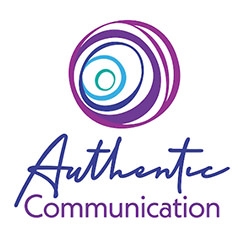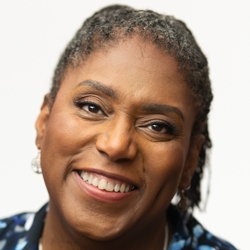
Search Results: unconscious
-
Ask the Trainer: "I have the understanding that the unconscious is vast compared to conscious mind. When I state 'needs' how well can I depend on there being something beneath my awareness that is actually the motivation?"
-
An addiction to something (eg. opioids, fats, sugars, salts, cigarettes, coffee, alcohol, etc.) or a compulsion (eg. gambling, shopping, working, sex or love addictions) is often an unconscious attempt to soothe trauma - fear, loneliness and shame that's frozen in unconscious memory. The addiction or compulsion is a substitute for what we really need. It is an endless craving that's never enough. Read on for more.
-
As human beings, our inherent goodness makes most of us believe in equality and yet sometimes our conviction in this same 'goodness' may make us blind to the reality of our own behavior. We are so convinced about the innocence of our intention that we seize to look at the impact of our behavior and thus our unconscious biases often go unexamined and unchallenged. Diversity, equity and inclusion work will only be of lip-service until we are willing to look at our own unconscious biases. Listen as Anisha Pandya encourages you to look at the possibility of how our self-awareness is so limited and one of the ways of expanding that awareness is by moving beyond our intention, looking at the impact of our behavior and remaining open to feedback.
-
-
-
-

In this 6-session course Sarah Peyton will take you through the 5 levels of unconscious contracts that can create patterns of self-sabotage and self-defeat. Each session introduces a different unconscious contract based on various aspects of relational neuroscience and provides support for the release of these contracts.
Sarah Peyton shows you how, with deep empathy, self-accompaniment, and an understanding of neuroscience, you can free yourself from your original constraints.
It can be bewildering to be human.
We can make so many choices that are not good for us. Why do we persist in habits, incapacities or self-judgments that are harmful to our long-term well-being?
The answer to this question is surprising – it is usually either love – or - paradoxically, survival!
Love is at the root of self-sabotage.
Though we often aren't aware of it, our nervous systems are essentially still paired with our earliest caregivers and often related to how we responded as a child. Our first interactions shape us in ways that can limit our life energy.
-
What's really going on underneath the surface when we bring or encounter blame, judgements, pain -- and thereby the inability to empathize, be present, attuned, or responsive? Why does this happen even if one or more people in a relationship dynamic is working hard at bringing in an NVC response? This article addresses these and more questions from the perspective of how our brains are affected in our relationships.
-
When it comes to self-sabotage and self-limitation, what's happening when we make ourselves smaller than we are? And what is it with the crippling experience we suffer when we exceed our own self-imposed limitations? What unconscious needs is your nervous system meeting by remaining small? Read on for the insights of Beatrice Beebe's research on biological imperatives, emotional language, and emotional limitations.
-
Sometimes when we regard needs as something that could be met or unmet by another person or by a situation we unconsciously hold the belief that our needs should be met. Or we end up holding blame or implying wrongdoing. People are more likely to resist a request made from this stance. Instead, here are practices to increasingly losen any remaining attachment or demand energy -- and open our hearts to ourselves and others while we make requests.
-
Sometimes there are moments when empathy has no effect at all on one another. Why? One reason could be that our brains maybe less receptive because of unseen forces that affect our nervous system and relationship to others...
-
Sometimes there are moments when empathy has no effect at all on one another. Why? One reason could be that our brains might be less receptive because of unseen forces that affect our nervous system and relationship with others.
-
Sometimes even a very skilled empathy practicitioner can go into offering a non-empathic response, even when asked for empathy. Why? One reason could be that our brains might be less receptive because of unseen forces that affect our brain and relationship with others. This article speaks to the deeper "why" and also to one thing we could do to turn it around...
-
What parts of yourself or others are hard to embrace, understand or even notice? What parts do others have difficulty embracing, understanding or noticing? Why do we condemn, loathe, hate, deny, judge, blame or feel shame around certain needs, feelings and parts of self and/or others? This article talks about the hidden parts of ourselves and others that shapes views and behaviours.
-
With abundant evidence that most people have unconscious biases against people --even when that bias runs counter to their own values-- there's a strong chance you recreate this disconnect with people far more often than you recognize. So even with a high degree of NVC skills you may behave in a way that seems "NVC" but also reproduces the painful patterns that marginalized people all-too-often experience. Read on for ways to transform pitfalls of NVC into more reliable connection.
-
There are ways to reduce obstacles to setting boundaries. Notice unconscious ways you sacrifice yourself in order to avoid boundary setting. List of signs that a life-serving boundary is needed, but you're denying this. Realizing you consistently abandoned your needs may require time to process and mourn before you can set boundaries consistently. With practice, you can recognize boundaries care for yourself and others.
-
Learn how unconscious impulses can lead to depleting patterns. Here, we look at two forms of reactive attempts we may use to avoid future pain, and how to make conscious decisions instead. Read on for questions that can help us see if we're making decisions from a grounded place, such as taking time to reflect on values, receive support from others, and getting curious about others' views.
-
Ask the Trainer: "At one point in my practice, it was brought to my attention that some people find the use of 'formal NVC' off-putting, or mechanical. Do you have any input or insight into this?"
-
Every one of us is impacted many times each day by micro-freezes that are the resulting fallout from both recent and long ago painful events. During this powerfully healing course, Sarah will walk you through a unforgettable tour of neuroscience, and succinctly demonstrate how NVC and neuroscience together can change your brain and enable your life to become both more fluid and far more resilient.
-
- Learn tips and strategies to ensure ALL voices are heard
- Grow your capacity to name and address power dynamics
- See how prior assumptions and perspectives impact how groups work together
- Explore facilitation components using a caring for all, power-with lens

















